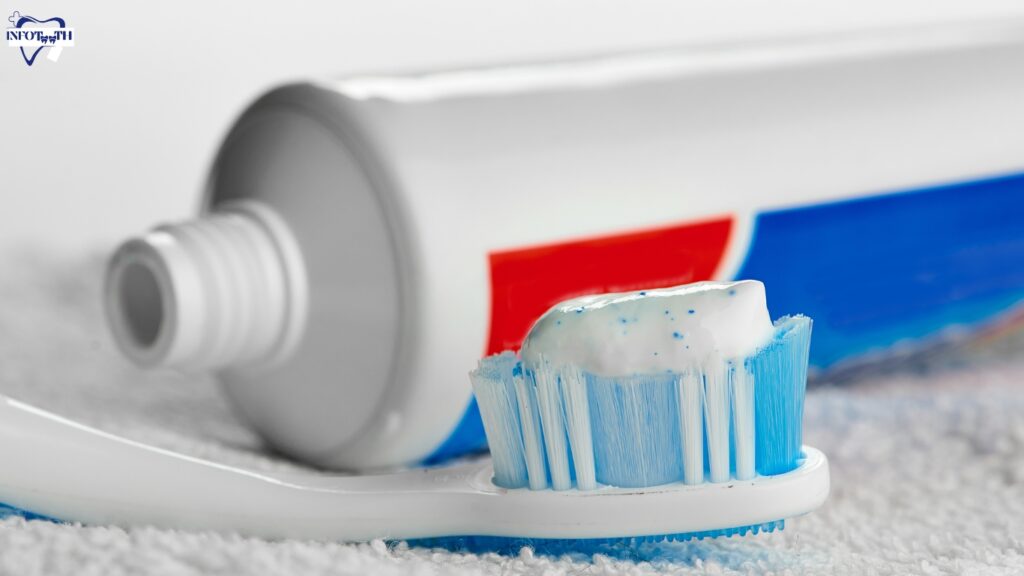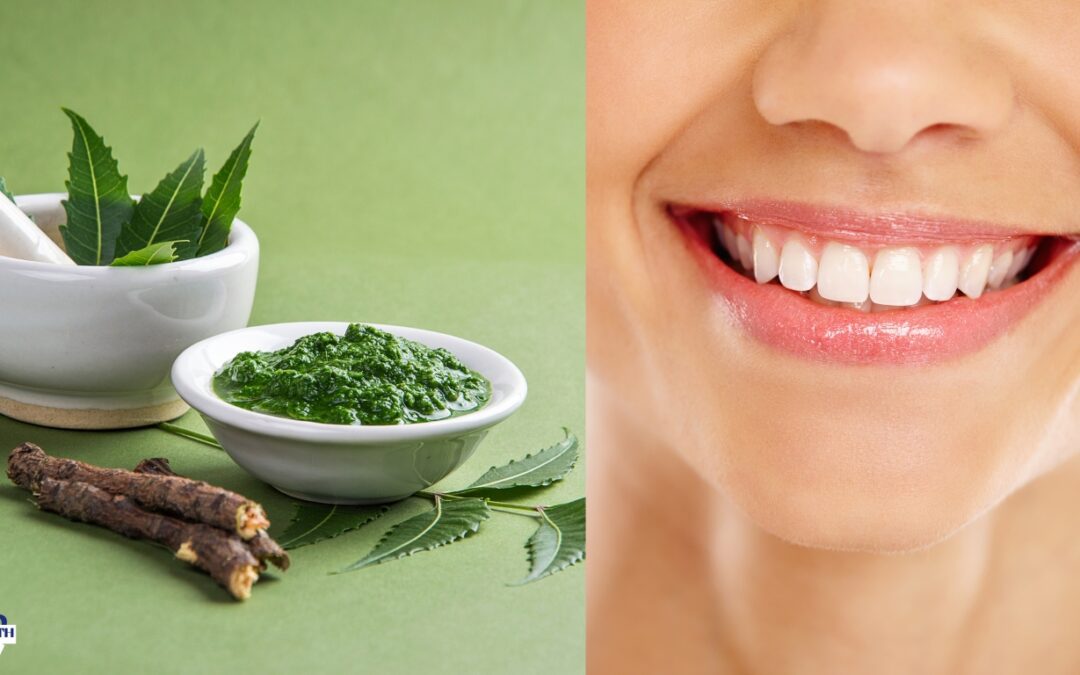Embark on a journey to discover the natural wonders of oral care as we delve into the topic of “Neem Bark for Teeth.” In this blog article, we explore the rich traditions and modern science behind the use of Neem Bark for Teeth, a time-honored remedy for maintaining optimal dental health. From its historical significance to the scientific principles that underpin its efficacy.
Table of Contents
Join us on a quest to unlock the secrets of this herbal treasure for a brighter, healthier smile.
Benefits Of Neem For Teeth
Unlocking the numerous benefits of neem bark for teeth reveals a natural powerhouse in oral care. First and foremost, neem bark possesses potent antibacterial properties, specifically targeting the bacteria that lead to plaque formation and cavities. This natural defense mechanism helps maintain a clean and healthy oral environment.
Moreover, neem bark is rich in compounds like azadirachtin, renowned for its anti-inflammatory properties. This feature not only aids in soothing gum inflammation but also contributes to the prevention of periodontal diseases. Regular use of neem bark products can be particularly beneficial for individuals prone to gum issues, promoting overall gum health.

Neem bark’s antimicrobial nature extends its benefits to combating bad breath. By addressing the root causes of oral malodor, it provides a refreshing solution that goes beyond traditional breath fresheners.
An additional advantage lies in neem bark’s potential to reduce tooth sensitivity. The natural compounds present in neem bark can help alleviate discomfort associated with sensitive teeth, offering a holistic approach to oral well-being.
Furthermore, neem bark is a sustainable and eco-friendly choice for oral care. As a natural resource, it aligns with environmentally conscious practices, contributing to a greener approach to self-care. Neem bark is used to reduce the main issue of missing teeth.
Can Neem Reverse Tooth Decay?
In the realm of oral health, the idea of a natural remedy capable of reversing tooth decay has sparked considerable interest, and neem bark stands at the forefront of this conversation. Scientific studies suggest that neem’s potent antibacterial properties may play a pivotal role in combating the bacteria responsible for tooth decay.
Neem bark contains compounds such as azadirachtin that exhibit powerful antimicrobial effects, targeting harmful bacteria and inhibiting their growth. Additionally, neem’s anti-inflammatory properties contribute to reducing inflammation in the gums, a common precursor to tooth decay.
Research indicates that neem can disrupt the formation of dental plaque, a key factor in the decay process. By hindering the growth of bacteria and preventing the accumulation of plaque on the teeth, neem bark may contribute to the reversal of early-stage tooth decay.
Moreover, neem’s ability to stimulate saliva production is crucial in maintaining a neutral pH level in the mouth, creating an environment less conducive to the proliferation of harmful bacteria.
While neem bark shows promise in promoting oral health and potentially reversing tooth decay, it’s essential to approach this as part of a holistic oral care routine. Regular brushing, flossing, and professional dental care remain integral components of maintaining optimal dental health.
Neem For Teeth Enamel
The quest for a radiant smile often revolves around enamel health, and neem bark emerges as a natural ally in this endeavor. The enamel, the protective outer layer of teeth, is susceptible to erosion from acids and bacteria. Neem Bark for Teeth, rich in compounds like azadirachtin, possesses potent antibacterial properties that combat harmful bacteria, safeguarding enamel integrity.
Scientific studies highlight neem’s ability to inhibit the growth of acid-producing bacteria, a crucial factor in preventing enamel erosion. Moreover, neem’s anti-inflammatory properties contribute to overall gum health, indirectly supporting enamel preservation by maintaining a healthy oral environment.

Incorporating neem bark into your oral care routine provides a gentle yet effective approach to enamel protection. Whether using neem-infused Toothpaste or incorporating neem bark mouthwash, the natural components work synergistically to fortify enamel against daily challenges.
Unlike some commercial products that may contain harsh abrasives, neem bark offers a gentle alternative. Its natural composition ensures enamel protection without compromising oral hygiene. Additionally, neem’s anti-inflammatory action can mitigate sensitivity, providing relief for those with enamel-related discomfort.
How To Use Neem For Teeth?
Unlock the potential of neem for optimal dental health with simple and effective practices. Start by choosing high-quality neem bark products from reputable sources, ensuring they are organic and free from additives. Incorporate neem bark into your daily routine through various forms such as powder, chew sticks, or infused Toothpaste.
To harness its benefits, consider crafting your DIY neem bark toothpaste using a straightforward recipe. Blend neem bark powder with a dash of water and a pinch of baking soda for a refreshing and natural alternative to commercial Toothpaste. This allows you to customize the formula to suit your preferences while enjoying the antibacterial and anti-inflammatory properties of neem.
Explore the versatility of neem bark mouthwash as a refreshing substitute for conventional options. Create your own by infusing neem bark in water and adding a hint of mint for a delightful and refreshing experience.
For targeted gum health, chew neem bark directly or opt for chew sticks made from neem. The act of chewing releases neem’s beneficial compounds, promoting healthy gums and preventing inflammation.
Incorporating neem bark into your oral care routine not only fosters a holistic approach to dental health but also addresses issues like bad breath at the root. Embrace the natural power of neem for your teeth, and witness the transformative effects of this ancient remedy on your overall oral well-being.
Comparison of Neem Bark For Teeth And Commercial Toothpaste
In the realm of oral care, the choice between neem bark and commercial Toothpaste sparks a significant debate. Let’s delve into a detailed comparison to help you make an informed decision.
1. Ingredients:
Neem Bark for Teeth is derived from the neem tree, neem bark is a natural, herbal remedy rich in antibacterial and anti-inflammatory compounds, offering a chemical-free alternative.

2. Antibacterial Properties:
Neem Bark for Teeth exhibits potent antibacterial properties, targeting harmful bacteria in the mouth and promoting overall oral health.
Commercial Toothpaste Often relies on chemical antibacterial agents, which may contribute to antibiotic resistance over time.
3. Anti-Inflammatory Benefits:
Neem Bark for Teeth is naturally anti-inflammatory, neem bark helps soothe and prevent gum inflammation, a common issue in oral health.
4. Commercial Toothpaste:
It may contain artificial anti-inflammatory agents, but the effects could be less pronounced compared to natural alternatives.
5. Chemical Additives:
Neem Bark for Teeth is generally free from synthetic additives, making it a preferable choice for those seeking a more natural oral care option.
Commercial Toothpaste May contain artificial colors, preservatives, and sweeteners, which some individuals prefer to avoid.
6. Environmental Impact:
Neem Bark for Teeth Sourced from a renewable and eco-friendly plant, neem contributes to sustainable oral care practices.
Commercial Toothpaste: Often packaged in non-biodegradable materials, contributing to environmental concerns.
7. Cost:
Neem Bark for Teeth Depend on the source, neem bark products can be cost-effective, especially when considering its multifaceted benefits.
8. Commercial Toothpaste:
Prices vary, but some premium brands can be relatively expensive.

9. Taste and Sensation:
Neem Bark for Teeth offers a unique, herbal taste that may take some getting used to, providing a refreshing and natural experience.
10. Commercial Toothpaste:
Comes in various flavors, catering to personal preferences, but may contain artificial taste enhancers.
Conclusion
In conclusion, neem bark emerges as a holistic and natural solution for maintaining optimal oral health. Its rich history, coupled with scientific validation, positions it as a viable alternative to commercial oral care products. By incorporating neem bark into your routine, you not only support your oral health but also contribute to a sustainable and eco-friendly approach to self-care.
FAQs
Q: Is neem bark safe for daily use?
A: Yes, neem bark is generally safe for daily use. However, it’s advisable to consult with a healthcare professional, especially if you have existing medical conditions or concerns.
Q: Can neem bark replace traditional Toothpaste?
A: Certainly! Neem bark can serve as a natural alternative to traditional Toothpaste, offering unique benefits with its antibacterial and anti-inflammatory properties for a holistic approach to oral care.
Q: How long does it take to see results with neem bark products?
A: Results with neem bark products may vary, but consistent use over time often yields noticeable improvements in oral health. Individual experiences may differ, so patience is key.
Q: Are there any side effects of using neem bark?
A: While rare, some individuals may experience mild irritation when using neem bark. It’s advisable to perform a patch test before regular use to ensure compatibility with your skin.
Q: Where can I find high-quality neem bark products?
A: High-quality neem bark products can be found at reputable health food stores, online retailers, and specialty stores. Ensure they are organic and free from harmful additives for optimal benefits.

